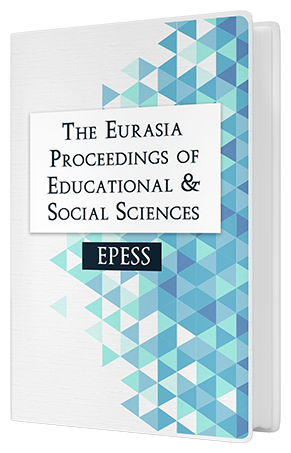Education of Molecular Biological Methods as Part Of Medical Laboratory Programs
Keywords:
PCR, Agarose, AmnionAbstract
Medical laboratory programs are important courses that provide associate degree education for intermediate technical staff who will later be employed in healthcare services. As part of the curriculum, students in this field are trained in molecular biological methods in the spring semester of their second year. The course aims to teach methods for isolating DNA from different biological materials, such as human blood, tissue samples and amniotic fluid, to teach the theoretical steps of the PCR (polymerase chain reaction), which is the basic method used for the amplification of the DNAs obtained, to allow students to practice the PCR method in the hospital’s practice laboratories, to provide theoretical lectures on methods for preparing agarose tanks and gels, applying DNA into agarose gel and migrating and visualizing DNA, and to allow students to apply these methods in student laboratories within vocational health service schools. In addition, different PCR-based molecular biology methods and in particular, techniques routinely applied in healthcare services are included in the program’s curriculum, and practical training of techniques and methods within the practical infrastructure of university hospitals is also provided. In our healthcare system, the presence of molecular medicine laboratories in both private and government institutions and the necessity of having equipped technical staff in these fields has rendered molecular biological method training a necessity. In conclusion, the combination of theoretical and practical training in the teaching of molecular biological methods increases the employment rate of students in our healthcare system after graduating from the program.Downloads
Published
Issue
Section
License
Copyright (c) 2018 The Eurasia Proceedings of Educational and Social Sciences

This work is licensed under a Creative Commons Attribution-NonCommercial-ShareAlike 4.0 International License.
The articles may be used for research, teaching, and private study purposes. Any substantial or systematic reproduction, redistribution, reselling, loan, sub-licensing, systematic supply, or distribution in any form to anyone is expressly forbidden. Authors alone are responsible for the contents of their articles. The journal owns the copyright of the articles. The publisher shall not be liable for any loss, actions, claims, proceedings, demand, or costs or damages whatsoever or howsoever caused arising directly or indirectly in connection with or arising out of the use of the research material. All authors are requested to disclose any actual or potential conflict of interest including any financial, personal or other relationships with other people or organizations regarding the submitted work.




